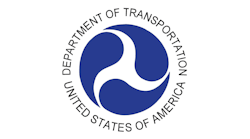The Department of Transportation and all operating agencies continue to work closely with officials in Texas as well as FEMA and Department of Homeland Security to assess the destruction caused by Hurricane Harvey as it begins to move from rescue to recovery process.
USDOT’s contributions to the disaster rescue and recovery effort has and will encompass financial assistance, deployment of personnel, emergency regulatory relief and all the tools we have which can be helpful.
USDOT’s Crisis Management Center has been fully staffed 24/7 since before Harvey made landfall. Per the President’s directive, USDOT has been coordinating closely with the Federal Emergency Management Agency (FEMA) and is providing support to the National and Regional Response Coordination Centers, as well as directly to local and state officials and transportation stakeholders in the affected areas.
On Tuesday, within an hour of a request from Governor Abbot, Secretary Chao directed the Federal Highway Administration to make $25 million in Emergency Relief funds immediately available to restore emergency access and initiate critical repairs to damaged roads and bridges. The Department will make available more than $100 million in financial support to meet the infrastructure needs of Texas and other affected states. DOT has approximately 40 staff from the modal administrations on the ground coordinating, getting transit assets back up and running, finding drivers for buses and trucks etc.
On Thursday, Secretary Chao traveled to the region with Vice President Mike Pence to survey the damage left behind by Hurricane Harvey.
While on site in Texas, and in response to one of the major emerging problems, the lack of fuel, Secretary Chao signed an Emergency Declaration removing restrictions on fuel delivery, so that fuel trucks from 27 states and jurisdictions can deliver much needed energy to Texas and other hurricane-impacted areas as quickly as possible. This was the second of two declarations issued by the Department; Secretary Chao also issued a Regional Declaration of Emergency to help alleviate a potential shortage of available drivers who are critical to delivering necessary supplies to the impacted communities in Texas, Louisiana and other states.
On Friday, the Maritime Administration activated two National Defense Reserve Fleet vessels for a FEMA mission to support relief efforts in Texas. The State University of New York (SUNY) Maritime College’s training ship, EMPIRE STATE VI, and the Massachusetts Maritime Academy’s training ship, KENNEDY, received orders to set sail within 10 days for the 4 to 5 day transit from the east coast to the gulf coast of Texas. MARAD also received notification from FEMA to activate the Texas Maritime Academy’s training vessel GENERAL RUDDER, which will remain in-port at Galveston. Once moored on site, the self-contained vessel will support recovery efforts by providing power, housing, food and water to first responders. Combined, these three vessels can house over 1,200 workers thereby freeing up local hotel resources for displaced individuals.
The Federal Aviation Administration has had over 1000 personnel tasked with the storm effort, including specialized Air Traffic Management support to facilitate Search and Rescue missions.
A team from the Federal Highways Administration has been on the ground before the storm made landfall, providing technical assistance to the TXDOT. Roads in the impacted areas continue to be inundated with water, with many closures. The FHWA stands ready to deploy more than 250 engineers who can be on the scene within 48 hours to begin expedited inspections of roads and bridges in the affected area. We are learning more by the hour and are working with our state partners to assess conditions as quickly as the water recedes.
DOT has established a Routing Assistance Hotline to support the transport of Federal and State response personnel, equipment and goods into Texas and Louisiana.
PHSMA is actively engaged in monitoring disruption to off-shore gas and petroleum production and distribution. These are just a few of the USDOT actions underway.
Background on Some of the Department’s Recent Efforts:
FHWA
- TX Division leadership planning visit with TX DOT regional staff in Corpus Christi, Rockport, and Victoria the week of September 4 to discuss joint damage assessments
- FHWS’s TX/LA division staff will supplement TX Dot’s inspection staff. They are prepared to shift resources from other parts of the country if additional support is needed.
PHMSA
- PHMSA issued an Emergency Waiver Order for the Hazardous Materials Regulations (HMR, 49 C.F.R. Parts 171-180) to persons conducting operations under the direction of EPA Region 6 within the Hurricane and Tropical Storm Harvey disaster and emergency areas of Texas and Louisiana
- PHMSA and FMCSA helped the Texas National Guard’s 6th Chemical, Biological, Radiological, Nuclear, Explosive (CBRNE) Enhanced Response Force Package (CERFP) conducting response and decontamination efforts in the Crosby, Texas facility explosion and fire. PHMSA connected the team with plume modeling experts to understand the risk from a large tank of sulfur dioxide and other base chemicals still at the facility
- PHMSA issued an emergency stay of enforcement of certain regulations for interstate pipeline operators on September 1, 2017.
FRA
- FRA opened Emergency Docket and has advised all railroads that the docket is open.
- FRA has established an internal system to review and respond to waiver requests within three hours.
- FRA and industry partners will begin railroad inspections to conduct damage assessments as soon as weather permits.
FMCSA
- FMCSA continues to Work closely with PHMSA and FHWA on special permitting for carriers carrying hazardous materials and for size and weight
- FMCSA issued a Regional Emergency Declaration on September 1 that will provide direct relief to the fuel shortages due to refinery delays and interruption of delivery through pipelines. This declaration will allow 26 states and the District of Columbia the ability to transport fuel
- The Governors of Kansas, Alabama, North Carolina, and Georgia have issued an emergency declaration based upon fuel shortage concerns
MARAD
- MARAD received a Mission Assignment from FEMA for the vessels TS Kennedy, TS Empire State, and TS General Rudder to support the humanitarian relief efforts in the areas of Beaumont (TS Empire), Houston (TS Kennedy), and Galveston (TS Rudder), Texas



